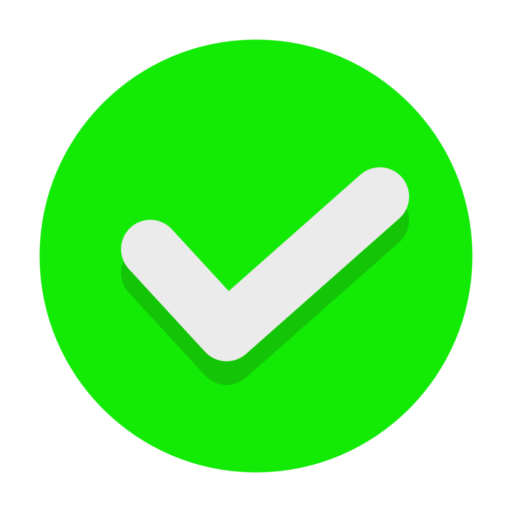In today’s dynamic business environment, Customer Relationship Management (CRM) systems have become indispensable tools for any small business looking to streamline operations, enhance customer engagement, and boost sales. With an array of options available, selecting the right CRM can be daunting.
This article outlines nine of the best CRM systems tailored for the needs of small businesses in the UK.
Top small business CRM options compared
| CRM System | Estimated Starting Price Per User/Month | Key Features |
|---|---|---|
| Salesforce Essentials | £20-£25 | Sales automation, customer service, analytics |
| HubSpot CRM | Free (Paid plans start at £40-£50) | Contact management, email tracking, pipeline management |
| Zoho CRM | Free (Paid plans start at £12) | Sales automation, marketing automation, analytics |
| Freshsales | Free (Paid plans start at £12-£15) | AI-based lead scoring, built-in phone and email, user behaviour tracking |
| Insightly | £25 | Contact and project management, workflow automation |
| Pipedrive | £12-£15 | Visual pipeline management, interaction tracking |
| Nimble | £19-£25 | Contact management, social media integration, sales automation |
| Copper | £20-£25 | Lead and pipeline management, email integration, analytics |
| Keap | £70-£80 | Email marketing, lead capture, ecommerce integration |
1. Salesforce Essentials
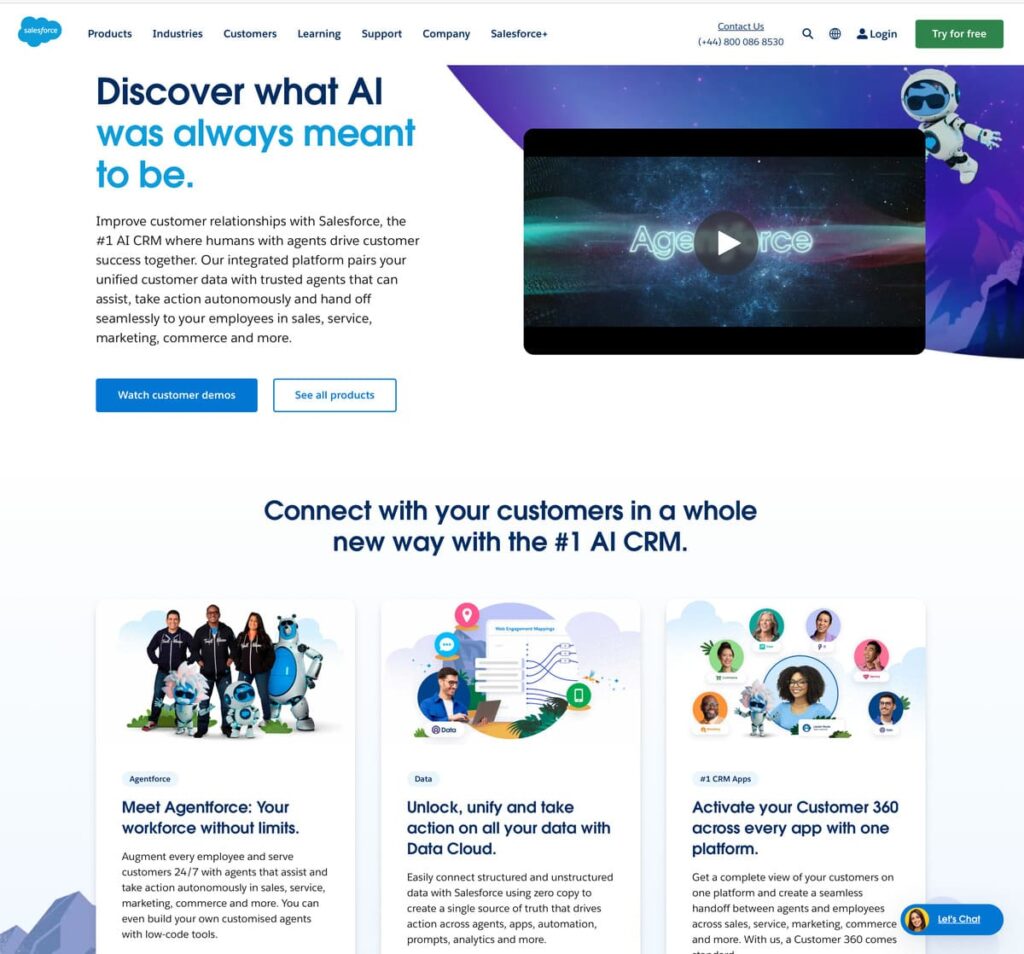
Salesforce Essentials is designed specifically for small businesses, offering a user-friendly interface with comprehensive features including sales automation, customer service, and analytics. Its scalability and integration capabilities make it a versatile choice for businesses poised for growth.
Pricing: Salesforce Essentials is priced at around £20-£25 per user per month, billed annually.
2. HubSpot CRM

HubSpot CRM is renowned for its free plan that caters to small businesses seeking basic CRM functionalities. It features contact management, email tracking, and pipeline management. Its simplicity and ease of use make it ideal for beginners.
Pricing: HubSpot CRM offers a free version with basic features. Paid plans, which include more advanced features, start at approximately £40-£50 per user per month.
3. Zoho CRM
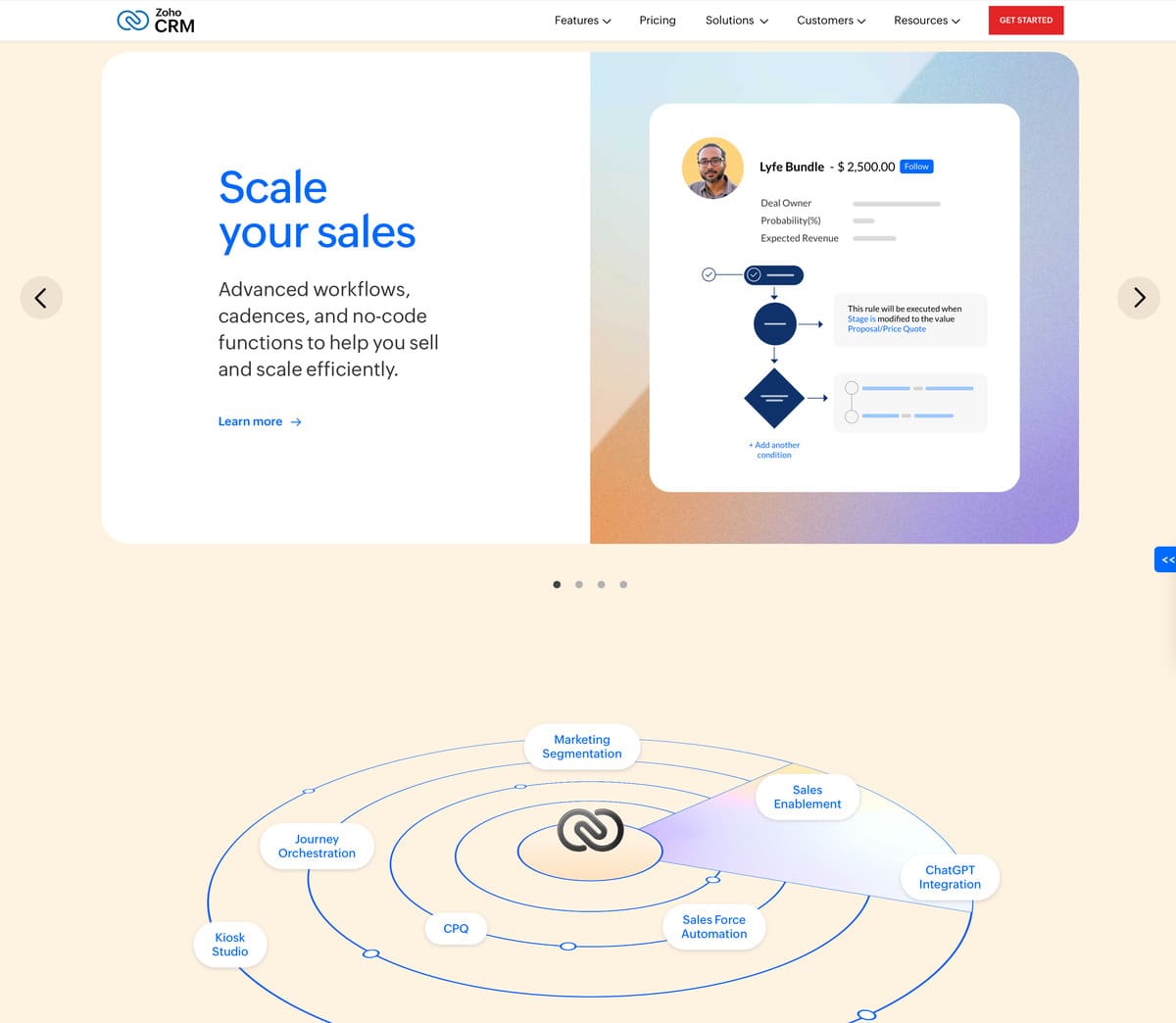
Zoho CRM offers a range of customisation options, making it a flexible solution for small businesses with specific requirements. Its features include sales automation, marketing automation, and analytics. Zoho CRM is also known for its affordability.
Pricing: Zoho CRM provides a free plan for a limited number of users. Its paid plans start from around £12 per user per month and can go up to £35-£40 per user per month for more advanced features.
4. Freshsales
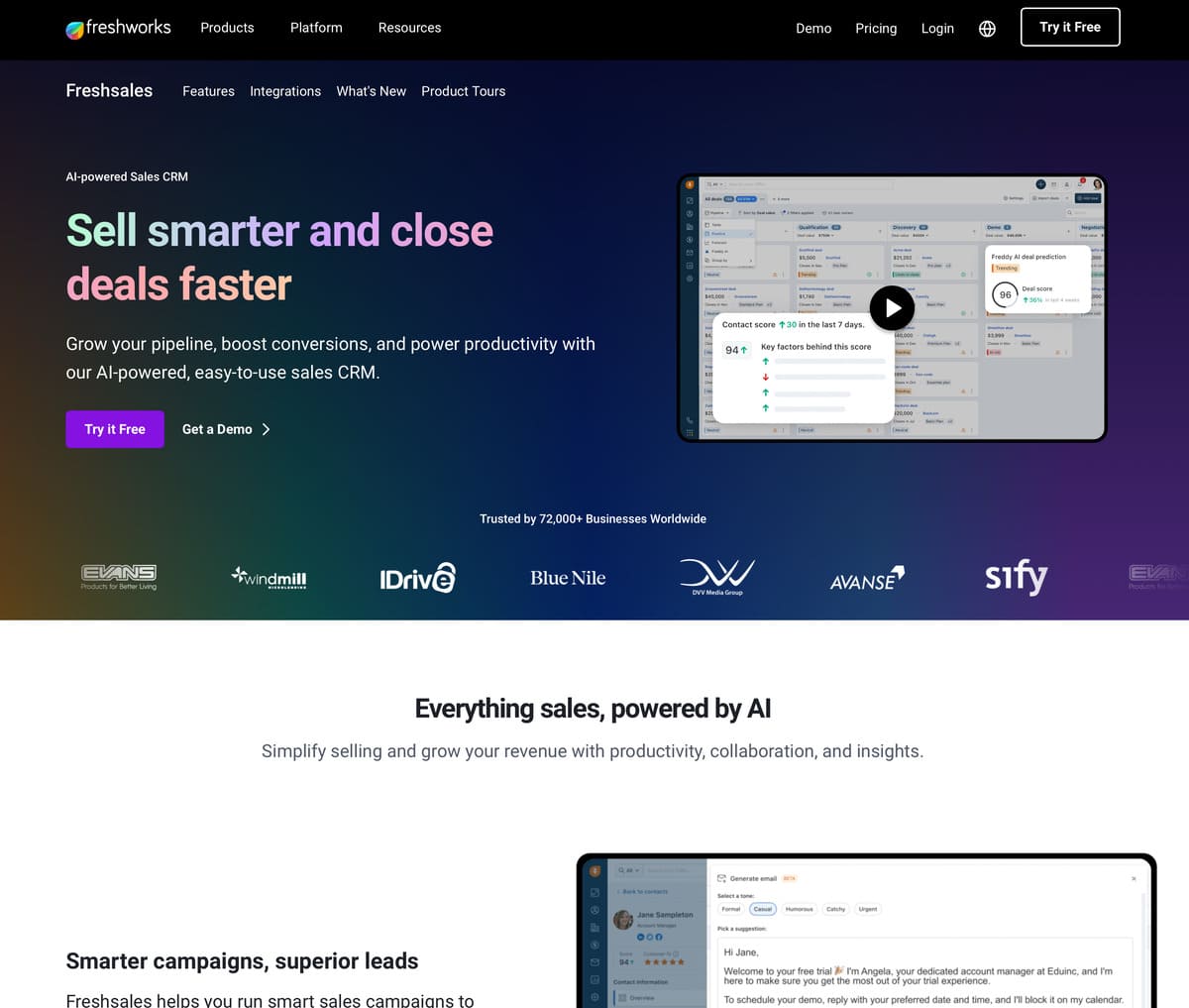
Freshsales by Freshworks provides a CRM solution focusing on ease of use and automation. Key features include AI-based lead scoring, built-in phone and email, and user behaviour tracking, which are beneficial for businesses looking to automate and streamline their sales process.
Pricing: Freshsales offers a free tier with basic functionalities. The paid plans start from approximately £12-£15 per user per month, with more comprehensive plans reaching around £40-£50 per user per month.
5. Insightly
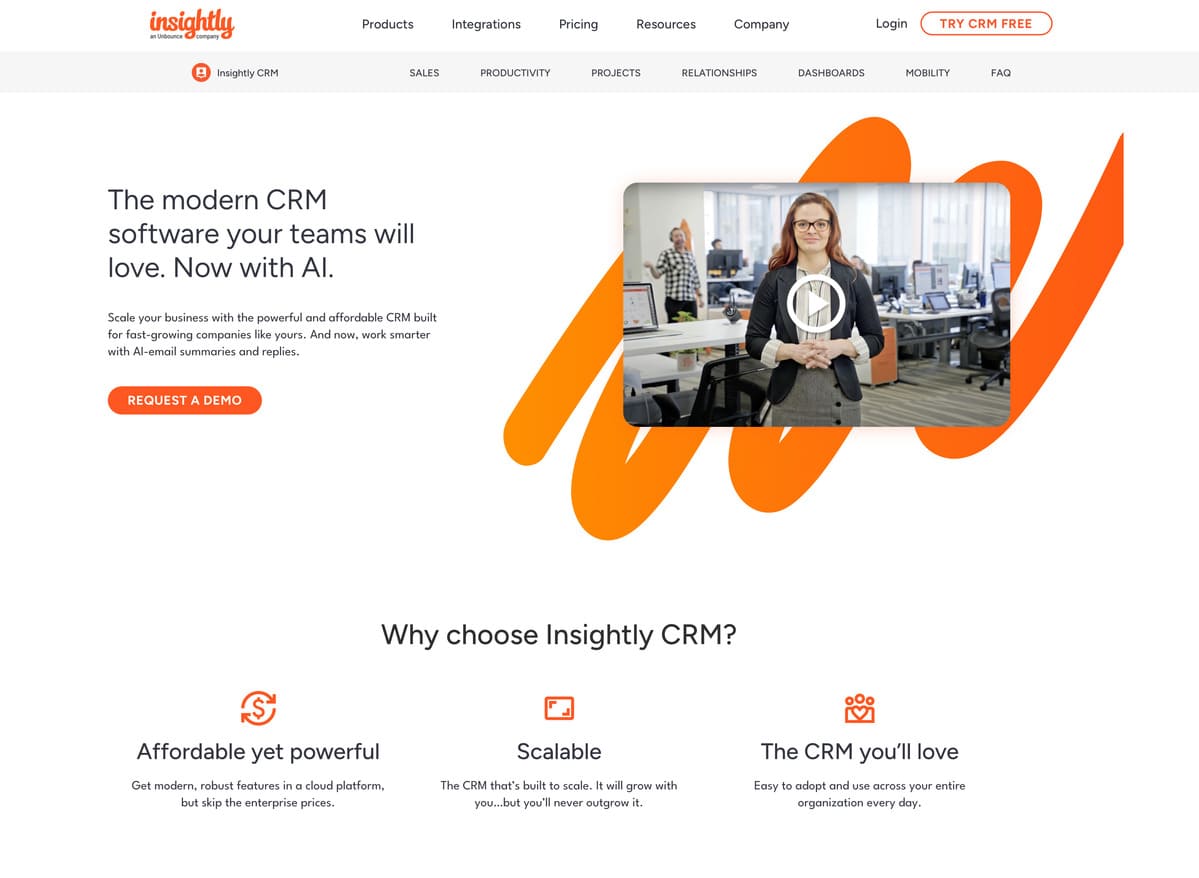
Insightly is a great option for businesses focused on project management. It offers CRM features like contact and project management, workflow automation, and integration with popular apps like G Suite and Microsoft Office.
Pricing: Insightly’s pricing typically starts at around £25 per user per month for its basic plan, with more advanced plans costing up to £50-£60 per user per month.
6. Pipedrive

Pipedrive is designed with sales teams in mind, offering a visual pipeline management tool that helps track interactions and sales processes. Its intuitive interface and customisation options make it a favourite among sales professionals.
Pricing: Pipedrive’s plans often start at about £12-£15 per user per month, with higher-tier plans costing around £50-£60 per user per month.
7. Nimble
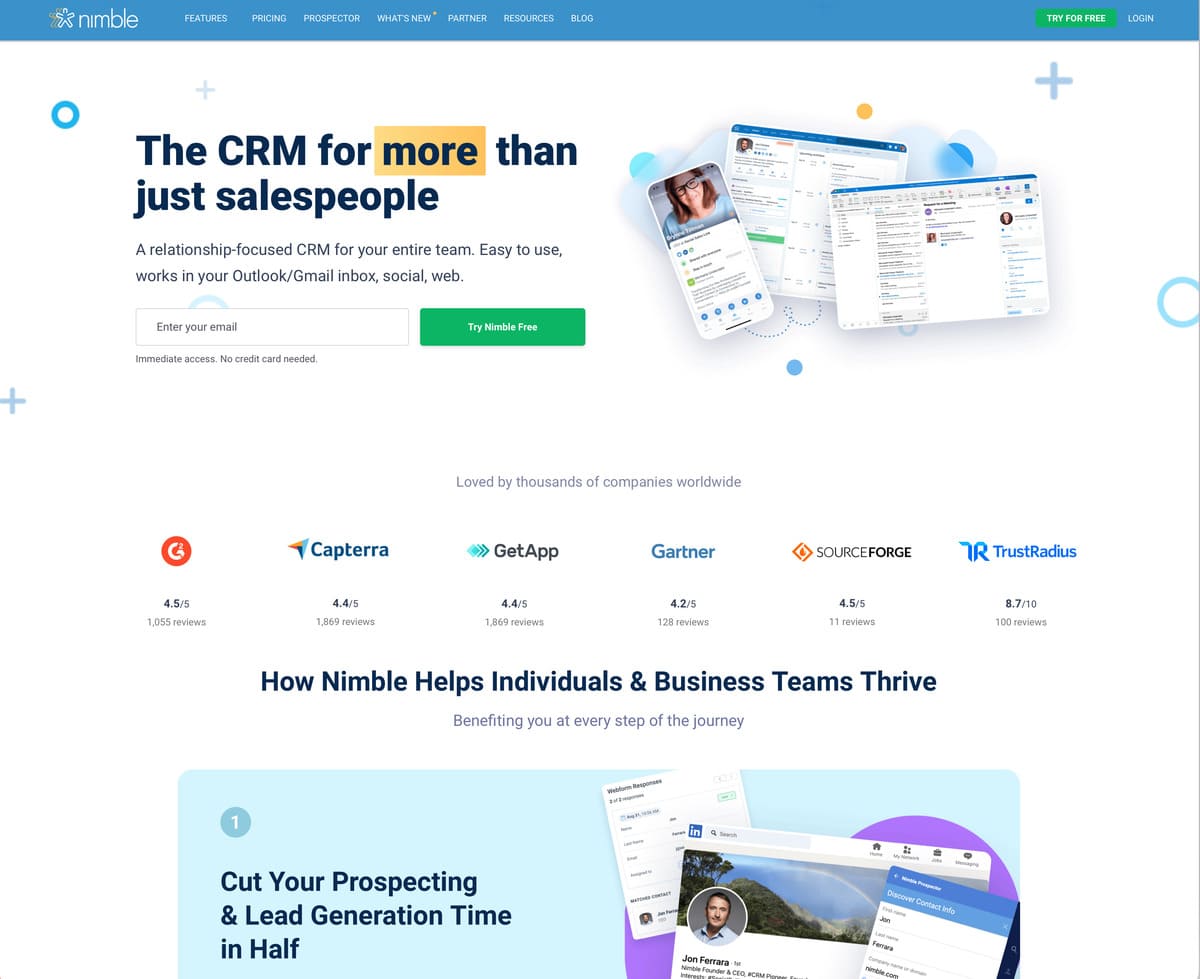
Nimble is ideal for small businesses looking for a simple yet effective CRM solution. It excels in social media integration and offers features like contact management, social listening, and sales automation.
Pricing: Nimble is known for its straightforward pricing, generally around £19-£25 per user per month.
8. Copper
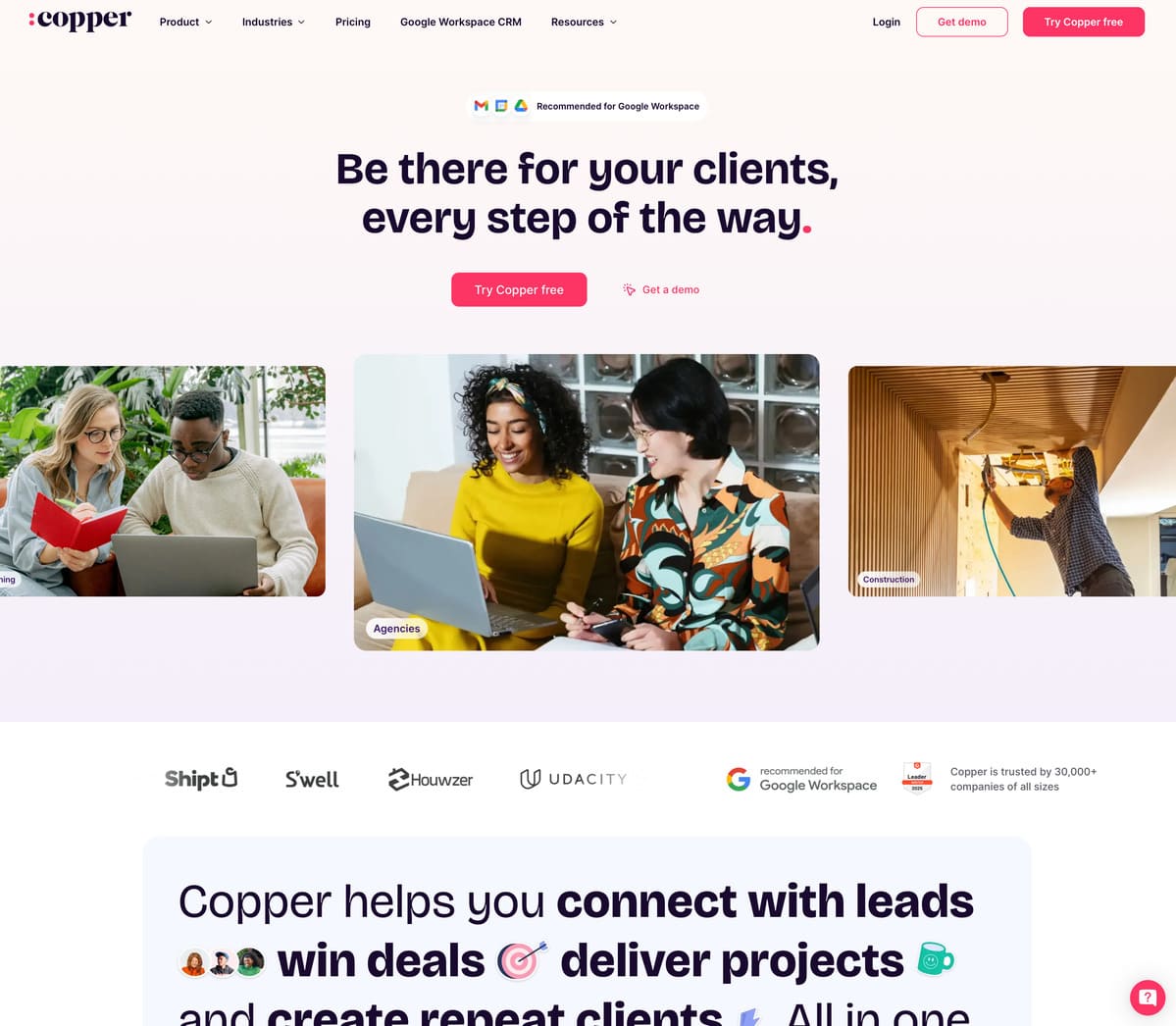
Copper CRM, formerly known as ProsperWorks, is best known for its integration with Google Workspace. It offers features like lead and pipeline management, email integration, and insightful analytics, making it suitable for businesses heavily reliant on Google services.
Pricing: Copper CRM’s pricing usually starts at around £20-£25 per user per month, with more comprehensive plans available at higher prices, potentially reaching £50-£60 per user per month.
9. Keap
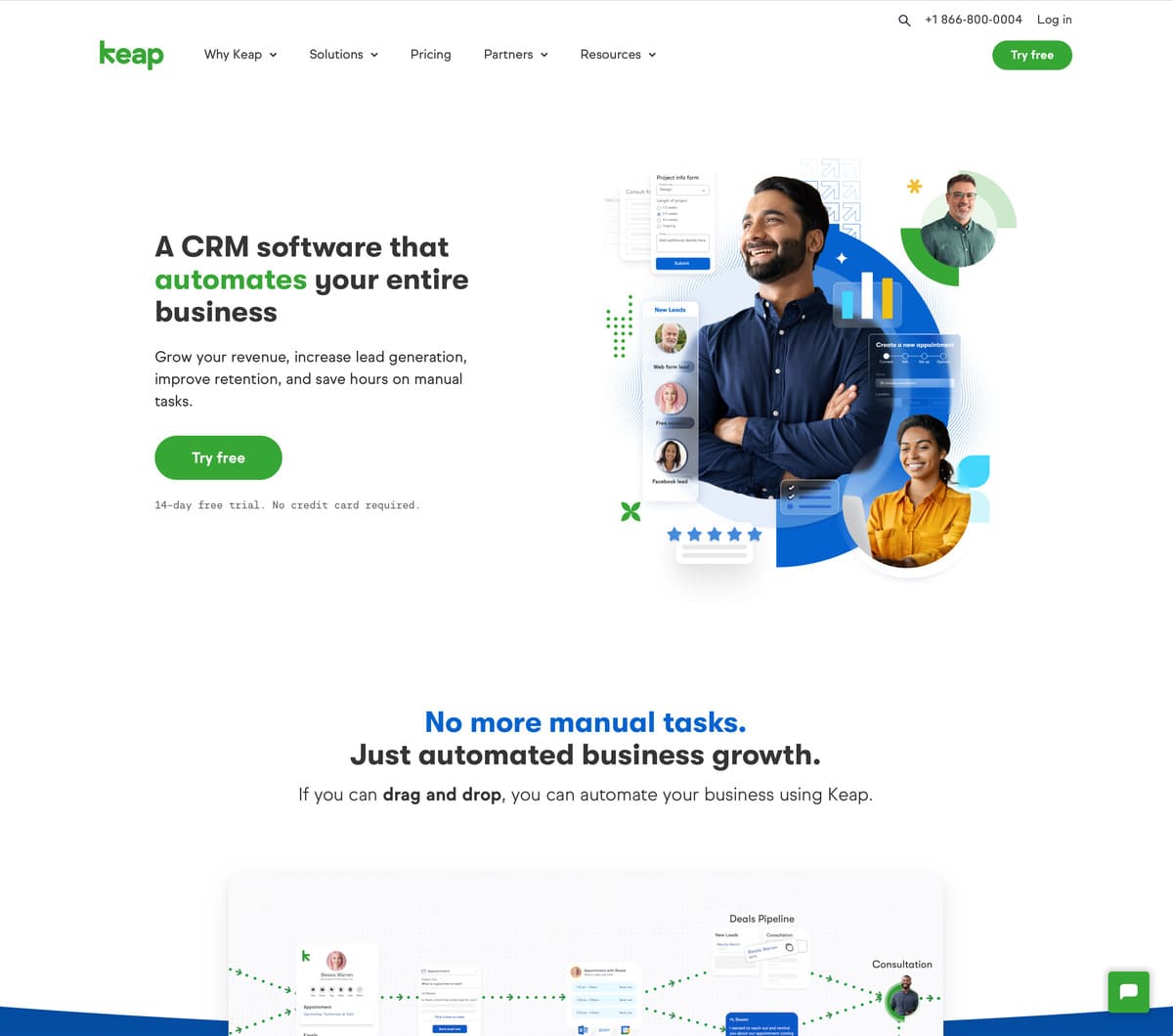
Keap (formerly Infusionsoft) is suitable for businesses that need a combination of CRM, sales, and marketing automation. It offers features like email marketing, lead capture, and ecommerce integration, making it a comprehensive solution for businesses looking to scale their operations.
Pricing: Keap offers plans starting from approximately £70-£80 per month, which can increase based on additional features and the number of contacts.
Considerations when choosing a small business CRM
When selecting a CRM system for a small business, several key considerations can guide you towards making the best choice for your specific needs. Here are some important factors to keep in mind:
Business Size and Scalability
Consider the size of your business and its potential growth. A CRM that suits a micro-enterprise might not be suitable for a small business poised to expand. Look for a system that is scalable and can grow with your business.
Ease of Use
The CRM should be user-friendly and require minimal training. Small businesses often lack the resources for extensive training, so a system with an intuitive interface and straightforward functionality is ideal.
Customisation and Integration
Check the extent to which the CRM can be customised to suit your specific business processes and needs. Additionally, consider its ability to integrate with other tools and systems you already use, such as email platforms, social media, or accounting software.
Features and Functionality
Identify the key features you need. Do you require advanced sales tracking, marketing automation, customer service tools, or reporting capabilities? Ensure the CRM you choose meets these essential requirements without overloading you with unnecessary features.
Cost-Effectiveness
Budget constraints are often a significant consideration for small businesses. Assess not just the initial cost but also the long-term expenses, including subscription fees, add-ons, and maintenance costs. A balance between affordability and functionality is key.
Mobility and Accessibility
In today’s mobile-first world, ensure the CRM is accessible on various devices, including smartphones and tablets. This feature is particularly crucial for businesses with field teams or those who require access to CRM data on the go.
Data Security and Compliance
Data security is paramount, especially with increasing concerns about data breaches and privacy. Choose a CRM that offers robust security features and complies with relevant data protection regulations.
Vendor Support and Community
Good vendor support can be invaluable, especially for businesses without a dedicated IT team. Also, a CRM with an active user community can provide additional support, tips, and best practices.
Reviews and Testimonials
Finally, look at reviews and testimonials from other small businesses. Learning from their experiences can provide insights into the system’s performance and the vendor’s customer service.
By carefully considering these aspects, you can select a CRM system that not only fits your current business needs but also supports your growth and evolution in the long run.
